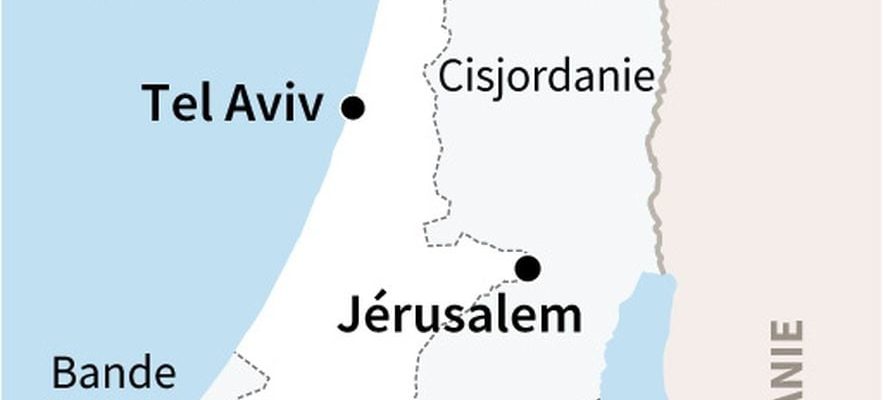He is an “icon of resistance, struggle and defiance” for Palestinian Authority President Mahmoud Abbas. But “a hub of terrorism” for Israel. The Jenin refugee camp in the occupied West Bank is considered one of the historic centers of Palestinian armed resistance to the Israeli occupation. It has been particularly in Israel’s sights since the start of the conflict on October 7, following the Hamas attack.
The Israeli army announced this Friday, November 17, that it had killed at least “five terrorists” in Jenin, while Hamas announced the death of three of its fighters “in the Battle of the Flood of al-Aqsa in Jenin.” The Palestinian Ministry of Health reported “three dead and 15 injured, including four in critical condition.” An assessment that no independent source is able to verify.
Military vehicles in Jenin
During the night from Thursday to Friday, an AFP journalist saw Israeli military vehicles plowing into the streets of the Jenin refugee camp. Israeli drones flew overhead as Palestinians threw stones and at least one explosive device at the vehicles. The soldiers fired a few tear gas grenades before exchanges of fire echoed in the camp, from where columns of black smoke rose.
Jenin
© / afp.com/
An “anti-terrorist action” carried out on November 9
Israeli soldiers withdrew Friday morning. The army claimed to have carried out an “anti-terrorist” operation in the camp and discovered “homemade explosive devices placed under and along the streets to attack Israeli security forces”. She also announced that she had “hit an armed terrorist cell”, citing “six weapons confiscated” and around fifteen “suspects arrested”.
On November 9, the Israeli army had already explained that it had carried out an “anti-terrorist action at the Jenin (refugee) camp” during which “more than ten terrorists were killed” and “more than 20 wanted suspects apprehended.” Among them, two Islamic Jihad militants who “shot at” her soldiers or “put them in danger,” she said.
The area around the emblematic mosque of the Jenin refugee camp has been the scene of an escalation of violence since the start of the war between Israel and Hamas in Gaza. Israeli forces are increasing raids, Palestinian fighters are confronting them in the streets, and posters bearing the image of “martyrs” are superimposed on each other.
As France 24 recalls, in 2002, during the second Intifada, Israel besieged the camp for more than a month during a military operation in the West Bank. Fifty-two Palestinians and 23 Israeli soldiers were killed in the fighting. More than 400 houses were destroyed, according to the United Nations Agency for Palestinian Refugees (UNRWA), and more than a quarter of the population was left homeless.
A camp undermined by poverty
In the refugee camp in the city of Jenin, which, like all major cities in the West Bank, is supposed to be under the sole control of the Palestinian Authority and its security forces, there are crammed together between 18,000 and 23,000 inhabitants. according to the UN, which manages it. This camp, with an area of 0.43 km2, is undermined by poverty and unemployment.
It was founded in 1953 to accommodate some of the 760,000 Palestinians who fled or were driven from their homes when the State of Israel was created in 1948. Over time, the tents were replaced by houses and the place now resembles a district of the city of Jenin. This camp gradually escaped the control of the Palestinian Authority security forces in favor of local armed groups.
Among these groups is Islamic Jihad, supported by Iran. Like Hamas, this armed group well established in Jenin is considered a terrorist organization by the European Union and the United States. Islamic Jihad, the Islamist movement Hamas and the armed wing of Fatah of Palestinian Authority President Mahmoud Abbas operate in the refugee camp under the aegis of the “Jenine Brigades”, recalls France 24.
On July 12, 2023, Mahmoud Abbas promised to rebuild this refugee camp. On July 3 and 4, the city of Jenin and the refugee camp were the scene of a 48-hour operation, the largest carried out by Israel in years in the West Bank.
Twelve Palestinians and an Israeli soldier were killed during the raid which mobilized hundreds of soldiers, drones and Israeli army bulldozers, damaging dozens of homes, schools and streets. Mahmoud Abbas’ last visit to the refugee camp was in December 2004, when he was a candidate in the Palestinian presidential election following the death of Yasser Arafat.
